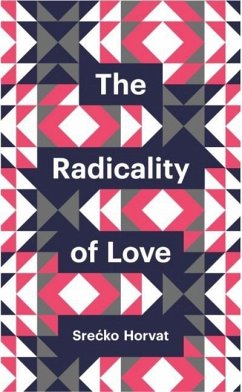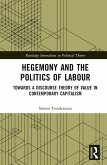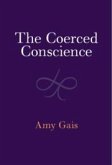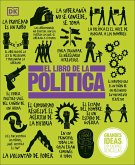What would happen if we could stroll through the revolutionary history of the 20th century and, without any fear of the possible responses, ask the main protagonists - from Lenin to Che Guevara, from Alexandra Kollontai to Ulrike Meinhof - seemingly naïve questions about love? Although all important political and social changes of the 20th century included heated debates on the role of love, it seems that in the 21st century of new technologies of the self (Grindr, Tinder, online dating, etc.) we are faced with a hyperinflation of sex, not love. By going back to the sexual revolution of the October Revolution and its subsequent repression, to Che's dilemma between love and revolutionary commitment and to the period of '68 (from communes to terrorism) and its commodification in late capitalism, the Croatian philosopher Srecko Horvat gives a possible answer to the question of why it is that the most radical revolutionaries like Lenin or Che were scared of the radicality of love. What is so radical about a seemingly conservative notion of love and why is it anything but conservative? This short book is a modest contribution to the current upheavals around the world - from Tahrir to Taksim, from Occupy Wall Street to Hong Kong, from Athens to Sarajevo - in which the question of love is curiously, surprisingly, absent.
"The relationship between politics and sexual love has been so often muddled and mystified by the Left - from the traditional Communist erotic conservatism through the ridiculous pseudo-revolutionary excesses of the "sexual revolution" up to the madness of Political Correctness. In his wonderfully readable book, Horvat simply sets the record straight: first, he shamelessly speaks about love, not about sex which has long ago lost its subversive edge; second, he asserts the radicality of love as a force which resists the very foundations of liberal permissiveness. A book which will turn Communists into lovers and lovers into Communists!"
Slavoj Zizek
"If you were a dictator, what would would you find most useful to control and suppress? This essay gives the answer: desire, love, sexuality, pleasure, whose force always threatens to make social order implode, from Lenin's Russia to Khomeini's Iran. But love is not only what dictators dream to suppress. It is the magma of revolutionary politics. The Radicality of Love is at once scintillating and incandescent and offers a profound reflexion on the reactionary and revolutionary politics of love.'
Eva Illouz'The relationship between politics and sexual love has been so often muddled and mystified by the Left - from the traditional Communist erotic conservatism through the ridiculous pseudo-revolutionary excesses of the "sexual revolution" up to the madness of Political Correctness. In his wonderfully readable book, Horvat simply sets the record straight: first, he shamelessly speaks about love, not about sex which has long ago lost its subversive edge; second, he asserts the radicality of love as a force which resists the very foundations of liberal permissiveness. A book which will turn Communists into lovers and lovers into Communists!'
Slavoj Zizek
'If you were a dictator, what would would you find most useful to control and suppress? This essay gives the answer: desire, love, sexuality, pleasure, whose force always threatens to make social order implode, from Lenin's Russia to Khomeini's Iran. But love is not only what dictators dream to suppress. It is the magma of revolutionary politics. The Radicality of Love is at once scintillating and incandescent and offers a profound reflexion on the reactionary and revolutionary politics of love.'
Eva Illouz
Slavoj Zizek
"If you were a dictator, what would would you find most useful to control and suppress? This essay gives the answer: desire, love, sexuality, pleasure, whose force always threatens to make social order implode, from Lenin's Russia to Khomeini's Iran. But love is not only what dictators dream to suppress. It is the magma of revolutionary politics. The Radicality of Love is at once scintillating and incandescent and offers a profound reflexion on the reactionary and revolutionary politics of love.'
Eva Illouz'The relationship between politics and sexual love has been so often muddled and mystified by the Left - from the traditional Communist erotic conservatism through the ridiculous pseudo-revolutionary excesses of the "sexual revolution" up to the madness of Political Correctness. In his wonderfully readable book, Horvat simply sets the record straight: first, he shamelessly speaks about love, not about sex which has long ago lost its subversive edge; second, he asserts the radicality of love as a force which resists the very foundations of liberal permissiveness. A book which will turn Communists into lovers and lovers into Communists!'
Slavoj Zizek
'If you were a dictator, what would would you find most useful to control and suppress? This essay gives the answer: desire, love, sexuality, pleasure, whose force always threatens to make social order implode, from Lenin's Russia to Khomeini's Iran. But love is not only what dictators dream to suppress. It is the magma of revolutionary politics. The Radicality of Love is at once scintillating and incandescent and offers a profound reflexion on the reactionary and revolutionary politics of love.'
Eva Illouz








